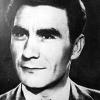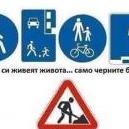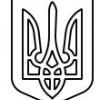-
Подобни теми
-
Какво ще прави държавата със старите панелни блокове? 1 2
От Стефан Василев,
- строителство
- софия
- (и 3 повече)
- 36 мнения
- 8641 прегледa
-
- 1 мнение
- 1951 прегледa
-
Кои са според вас 10-те български владетели/държавни глави направили най-много за държавата? 1 2 3
От Стефан Василев,
- 68 мнения
- 6356 прегледa
-
Защо българина не почиства изпражненията на кучето си?
От Стефан Василев,
- психология
- манталитет
- (и 6 повече)
- 8 мнения
- 2874 прегледa
-
- 0 мнения
- 1423 прегледa
-
-
Последна активност
-
Тръмп - Европа и войната в Украйна. Какво да очакваме? 1 2 3 4 13
От nik1, in Руско-украинската война 2022 година.
- 313 мнения
- 10667 прегледa
-
- 1895 мнения
- 159970 прегледa
-
- 25 мнения
- 534 прегледa
-
- 3 мнения
- 160 прегледa
-
- 33 мнения
- 141 прегледa
-
-
Последно разглеждащи 0 Потребители
- No registered users viewing this page.
За нас
"Форум Наука" е онлайн и поддържа научни, исторически и любопитни дискусии с учени, експерти, любители, учители и ученици.
За своята близо двайсет годишна история "Форум Наука" се утвърди като мост между тези, които знаят и тези, които искат да знаят. Всеки ден тук влизат хиляди, които търсят своя отговор. Форумът е богат да информация и безкрайни дискусии по различни въпроси.
Подкрепи съществуването на форумa - направи дарение:





Препръчано мнение
Напиши мнение
Може да публикувате сега и да се регистрирате по-късно. Ако вече имате акаунт, влезте от ТУК , за да публикувате.